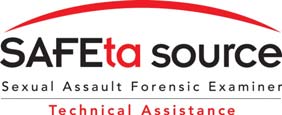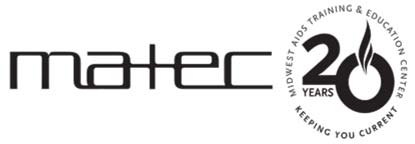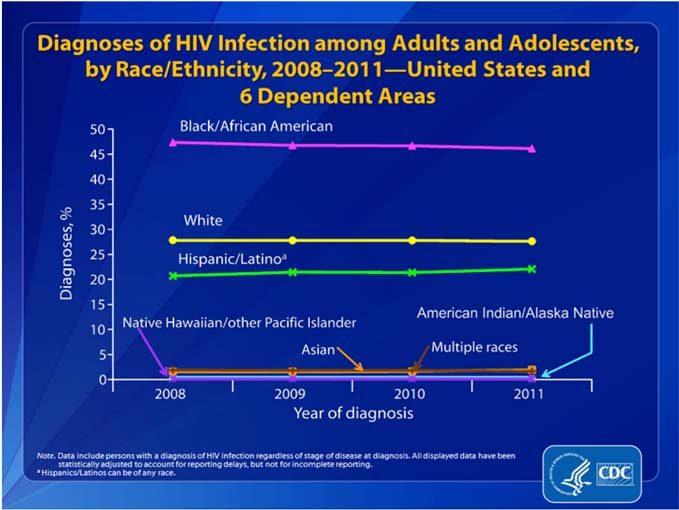Microsoft powerpoint - hiv npep for iafn final 12-5-13 [compatibility mode]



Welcome to the IAFN,
SAFE-TA, and MATEC Webinar:
PEP for Prevention
of HIV: When, Why & How
IAFN requests that you e-mail the names of any non-registered
attendees who may be sharing this webinar experience with you
so we can track attendance. Please send additional attendee
names to [email protected] today.
Thank you in advance for your help and cooperation!
This webinar was supported by Grant No. 2011-TA-AX-
K021 awarded by the Office on Violence Against
Women, U.S. Department of Justice. The opinions,
findings, conclusions, and recommendations expressed
in this presentation are those of the authors and do not
necessarily reflect the views of the Department of
Justice, Office on Violence Against Women.
This webinar is supported with funding from the U.S.
Public Health Service, Health Resources and Services
Administration (HRSA), HIV/AIDS Bureau under Grant
Joint Position on Universal
Access to Anti-HIV Medication
The Association of Nurses in AIDS Care (ANAC),
International Association of Forensic Nurses (IAFN),
National Alliance to End Sexual Violence (NAESV), and
National Sexual Violence Resource Center (NSVRC)
recommend that systems be established to ensure that
survivors of sexual assault have universal access to
medications to prevent HIV following rape. In too many
communities, access to these medications is lacking or
Joint Position (Continued)
In summary the above mentioned organizations
recommend that:Health care providers treating sexual assault patients
include HIV risk assessment and potential prophylaxis as a
standard component of the medical-forensic examination.
Anti-HIV medications be available where and when
patients present after sexual assault.
People who have been sexually assaulted not be expected
to carry the financial burden for HIV nPEP.
People who have been sexually assaulted have access to
advocacy and supportive services before, during and after
HIV testing and nPEP provision.
At the conclusion of this program, participants will be able
Identify patients of sexual assault patients who are
appropriate patients to receive antivirals post-assault.
Select appropriate antivirals for patients who have been
Identify resources in their respective practice settings to
assist post sexual assault patients with acquiring antivirals.
Should be OBJECTIVES Not Agenda
Implement HIV nPEP
Resources for care
Kim Day, 9/5/2013
Postexposure Prophylaxis
(nPEP) for HIV
Diane M. Janowicz, MD
Assistant Professor of Medicine
Indiana University School of Medicine
MATEC Indiana - Clinical Faculty
Global Summary of the AIDS
WHO-HIV Department, November 12, 2013. WHO/UNAIDS/UNICEF
US HIV Epidemiology
1.2 million persons living with HIV
21% of infected persons unaware of status!
50,000 new infections/year
stable for two decades
$19 billion/year for prevention, care, &

What is nPEP?
antiretroviral (HIV) medications prescribed
within 72 hrs to patients with a known or
suspected exposure to prevent active HIV
nPEP regimen similar to those used to
treat HIV infection, but for 28 days
Estimated Per-Act Risk
for Acquisition of HIV by
Blood transfusion (1 unit)
Needle-sharing injection drug use
Receptive anal intercourse
Percutaneous needle stick
Receptive vaginal intercourse
Insertive anal intercourse
Insertive vaginal intercourse
Receptive oral intercourse
Mucosal Membrane Exposure
(AETC National Resource Center 2008, www.aidsetc.org, Fisher et al., 2006)
Evidence for nPEP
Animal models demonstrate variable results
Macaque Model (SIV)
– 4 animals, start 12 hrs after exp – x 28 d (0/4 SIV)– 4 animals, start 36 hrs after exp – x 28 d (0/4 SIV)– 4 animals, start 72 hrs after exp – x 28 d (1/4 SIV)
Small window period during which ART may
interrupt the initial infection of cervicovaginal
mucosa or the dissemination of local infection
Evidence for nPEP
Post-natal prophylaxis reduces HIV
transmission at 14-16 w1
– Mother receives nevirapine during labor, baby
within 72 h (25% transmission rate to 13.1%)
Occupational PEP2
– 33 cases, 655 controls– AZT PEP reduced acquisition (OR: 0.19 CI:
1LA Guay et al. Lancet, 1999 and 2DM Cardo et al New Engl J Med. 1997.
South Africa study of rape survivors
– -480 women followed for 6 weeks – -zidovudine + lamivudine (AZT + 3TC)
1 acquired HIV (started 96 hrs after assault) 1 woman who sought treatment 12 days after the
assault acquired HIV (seroconverted at 6 wks)
Brazilian study of sexually assaulted women
– -(AZT + 3TC)+/- indinavir if < 72 hrs
0 of 180 PEP acquired HIV
– no treatment if > 72hrs, HIV- assailant, or
condom used and no mucosal trauma
4 of 145 untreated women acquired HIV
Evaluating a Patient
following
Step 1: Order an HIV Test
Detect Antibodies
Detect Antibodies
Hours or Days for
20 minutes for
Oral or finger stick
Results must be
Step 2: Review Results
Reactive HIV Screening Test:
– Do NOT offer nPEP.
– This patient MAY have HIV infection.
– Confirm HIV infection with a Western Blot.
– Refer patient to an HIV Expert.
Non-reactive HIV Screening Test:
– Your patient was not previously infected.
Window period of up to 3 months before Ab to HIV are
produced after an exposure; during this period, HIV
screening tests may be non-reactive! Discuss with your
– Your patient may be a candidate for nPEP.
Step 3: Assess Risk
Substantial Exposure Risk
Negligible Exposure Risk
vagina, rectum, eye, mouth, or other vagina, rectum, eye, mouth, or other
mucous membrane, non-intact skin,
mucous membrane, non-intact skin,
or percutaneous contact
or percutaneous contact
blood, semen, vaginal secretions,
Urine, nasal secretions, saliva, sweat,
rectal secretions, breast milk, or
or tears if not visibly contaminated
any body fluid that is visibly
contaminated with blood
Of the known or suspected HIV status
the source is known to be HIV
Step 4: Follow the nPEP
< 72 hours since
>72 hours since
Source patient of
unknown HIV status
Step 5: Make an nPEP
The situation you described puts you at low risk for
exposure to HIV. In this situation, we do not
routinely recommend the HIV exposure medications.
If you feel strongly that you want to be given these
medications we will provide them for you.
The situation you have described to me is a high
risk situation because _. We recommend the
following medications because they have been
shown to minimize the possibility of a patient
becoming HIV positive. Your HIV screening was
negative today, so we can start you on the
Step 6: Prescribe nPEP
Initiate within 2 hrs, up to 72 hrs
Discuss and document:
Potential benefit, unproven efficacy &
potential toxicity of PEP
Importance of adherence
Risk reduction & prevention behaviors
Signs & symptoms of primary HIV infection
Necessary clinical & lab monitoring follow-up
Every patient prescribed nPEP should
leave with a Starter Pack (enough
meds for 3-7 days)
Labs Needed for nPEP
Weeks Post
Months Post
Months Post
HIV antibody
Serum Liver
STD Screen
Pregnancy
Common nPEP Regimens
II (Integrase Inhibitors)
Raltegravir (Isentress) 400 mg twice
Dolutegravir (Tivicay) 50 mg daily
PI (Protease Inhibitors)
Lopinavir 200 mg/Ritonavir 50 mg– (Kaletra) 2 tablets twice dailyAtazanavir (Reyataz) 300 mg &
Ritonavir (Norvir) 100 mg daily
(Nucleoside Reverse Transcriptase Inhibitors)
•*Emtricitabine + tenofovir (Truvada®)
•Lamivudine + zidovudine (Combivir®)
Common Side Effects
Drug Class
Ergot Derivatives
Dihydroergotamine, ergonovine,
GI Motility Agents
HMG-CoA Reductase
Lovastatin, simvastatin
Midazolam, triazolam
nPEP + Contraception
Kaletra decreases the efficacy of OCPs.
-additional forms of protection [should be using condoms anyway] to prevent
pregnancy for up to 2 months after
completing nPEP.
Kaletra interacts with Plan B.
– In situations where the patient has a high-
risk exposure (assailant known HIV+),
raltegravir could be considered over other
Hepatitis B
If victim has evidence of full HBV vaccine series,
no screening or prophylaxis is necessary.
If victim is non-immune, risk for acquiring
Hepatitis B if assailant was HBsAg+ (chronic
hepatitis B or carrier state).
-incidence of HBsAg+ in USA: 0.2%.
Truvada has activity against Hep B and may be
helpful in preventing acquisition
Guidelines exist for giving HBIG for known
positive Hep B assailants
Information All Patients
Written instructions on:
– Importance of taking HIV medications as
prescribed and until gone
– How to protect themselves and others from
– Must use condoms for 3 months
– Who to call if they have questions or concerns
National Post-Exposure Prophylaxis
(24 hours per day and 7 days per week)
Implementation of HIV
Lee Wilbur, MD, FAAEM
Professor of Clinical Emergency Medicine
Vice Chairman; Department of Emergency Medicine
Director of Interprofessional Education
University of Arkansas for Medical Sciences
2004 – 2013
Medical Director Wishard Hospital Center
Medical Director Wishard Emergency
Department HIV Team
What is the Center of Hope?
What is the Emergency Department HIV
Topics to Discuss
Rationale for nPEP
Overcoming barriers from the Medical
Director perspective
The nPEP protocol at Wishard
Liability concerns…how we feel protected.
IAFN: Joint Position on Universal Access
to Anti-HIV Medication
HIGHLY vulnerable population
LOW rate of follow up historically
Cost: Who pays for the HIV test? Who
pays for the Starter Packs? Who pays of
the remainder of the nPEP
Follow-up: Does everyone on nPEP need
Infectious Disease Follow-up? What if the patient has side effects?
Staff: Who are they? Their nPEP training?
Program Oversight: Who? How?
Overcoming Barriers:
Putting together a strong team
Collaborative relationships:
– Medicine, Nursing, Pharmacy, Administration,
Law Enforcement, and the Community
Removed barriers FROM THE PATIENT'S!
– Eliminated need to f/u with Inf. Dz.
– 5 day starter packs provided free– Remaining 23 days provided free **– No longer require blood draw prior to nPEP
Your Team
Administrative Champion
Pharmacy Advocate
SANEs Trained on HIV nPEP
Physicians (including Residents!)
Community Pharmacy
Wishard Protocol: Sep 2013
When the HIV status of the assailant is UNKNOWN, then
the preferred regimen is:
Truvada (tenofovir/emtricitabine) – 1 tablet once a
If Truvada is contraindicated, then
Combivir (zidovudine/lamivudine) – 1 tablet twice a
Wishard Protocol: Amended
To be completed when protocol UPDATED
and APPROVED. Moving to a 3 drug
Has few side effects and does not require
monitoring; thus the entire 28 days can be
dispensed – eliminating the need for routine I.D.
Clinic follow-up and the reduction in follow-
through that this may induce.
For patients who are assaulted by someone KNOWN to be
HIV-infected with unavailable or unknown medication and
resistance history, the patient will be given the 5-day
"starter pack" of medications:
Truvada (emtricitabine/tenofovir) – 1 tablet daily
Reyataz (atazanavir) 300 mg – 1 tablet daily
Norvir (ritonavir) 100 mg – 1 tablet daily
This is a once-daily regimen which may be taken at any time of day. This can ONLY be used if patient is not taking and agrees not to take antacids of any kind, including proton pump inhibitors, H2 blockers, or TUMS.
If the patient must be on acid suppression is:
Truvada (emtricitabine/tenofovir) – 1 tablet daily
Kaletra (lopinavir/ritonavir) – 2 tablets twice a day
Contraindications to the regimens above include an allergy to
any of its components or a concurrent medication which
significantly interacts with RITONAVIR. The list of interactions
is long, and all medications must be cross-checked with the
package insert or the Pharmacy. Some merely require close
monitoring, others require dose modification, while others are
contraindicated. Truvada should be adjusted for renal
insufficiency which would necessitate a call to Infectious
Follow-up at Wishard (1)
One of the following two options below for follow-up will
be offered based on the case complexity:
A visit scheduled at the Special Medicine Clinic within 5 days The
Special Medicine Clinic will provide a prescription for the remaining
medications to complete a 28-day course of treatment, and
consultation as needed for the patient. This would be the preferred
method of follow-up for complicated cases and those on 3
drug PEP regimens exposed to known HIV positive assailants.
Follow-up at Wishard (2)
A visit will be scheduled with the Center of Hope within 5 days to
check on adherence and tolerance of medications. Center of Hope will
email Infectious Disease, who will attempt to be available at the time
of this appointment as needed, to either consult over the phone with
the practitioner or to see the patient briefly in the Center of Hope
setting if needed. In particular for those individuals receiving
Truvada alone, this second option may be better to avoid the
trauma of being seen in the I.D. Clinic.
.
Follow-up at Wishard (3)
A visit will be scheduled with the Center of hope at 2 weeks for
fol ow-up CBC and LFTs for those patients on the Truvada-Reyataz-
Norvir, Truvada-Kaletra, Truvada-Lexiva, and Combivir regimens (i.e.,
not needed for the Truvada alone regimen). If they are abnormal,
the nurse will communicate these results with the Special Medicine
Clinic at 630-6643.
Follow-up at Wishard (4)
A visit will be scheduled with the Center of hope at 2 weeks for
fol ow-up CBC and LFTs for those patients on the Truvada-Reyataz-
Norvir, Truvada-Kaletra, Truvada-Lexiva, and Combivir regimens
(i.e., not needed for the Truvada alone regimen). If they are
abnormal, the COH will communicate these results with Infectious
A visit will be scheduled at the Center of Hope or elsewhere at 6
weeks, 3 months and 6 months for follow-up HIV testing
Nuts and Bolts
Who writes the scripts?
Who pays for the scripts?
A Note on Liability
Collaborative Practice Agreements:
– Medical Director signs for all SANE's– Provide scope of practice for Center of Hope
Hospital approved protocols:
– HIV Screening during SANE exam– SANEs operate within hospital protocol– Infectious Disease consultation– Pharmacy agreement
Rationale: to serve a vulnerable
Barriers: Overcome through
collaboration and communication
Protocol: In consultation with Infectious
Disease. Make an institutional policy.
Liability: Minimal
Resources for Providing
HIV nPEP to Uninsured &
Lynn Young, LSW
Forensic Specialist,
Indiana University Health Methodist Hospital
Indianapolis, Indiana
Paying for the Medications
All patients who are prescribed nPEP should leave
with a starter pack of medications. This helps to
fill the gaps if a patient has trouble getting the
Insured Patients
Should use their insurance (private or Medicaid). If
they do not pay – then move to patient
assistance. Co Pay Assistance programs are
available also through Drug Companies.
Non-Insured Patients
The makers of Exposure Medications have great
Patient Assistance Programs and will provide FREE
Importance of Starter Packs
All patients (insured or not insured) who are
prescribed nPEP should leave with a starter pack
of medications.
This helps to fill the gaps if a patient has trouble
getting the prescription filled.
Most Emergency Departments provide 4-7 days of
treatment in their starter packs
Truvada Patient Assistance
Advancing Access™ Program
Provides immediate access to Truvada®
(emtricitabine and tenofovir disoproxil fumarate)
for U.S. patients who cannot obtain
reimbursement or afford to pay for all or part of
the cost of Truvada. The program enables patients
who meet program criteria to access Truvada on
the same day they receive a prescription from
their healthcare provider. Advancing Access also
helps patients find insurance coverage and
provides Truvada until other support covering the
cost becomes available, if ongoing medication is
needed beyond the emergent 28 days.
Accessing the Truvada
Advancing Access™ Program
For more information about Advancing Access,
physicians and patients may call:
1-800-226-2056 between 9:00 a.m. and 8:00
p.m. Eastern Time.
Immediate vouchers for medication assistance can
be obtained with a statement of emergent need
from an NP or MD faxed to 800-216-6857.
Kaletra and Norvir
The AbbVie Patient Assistance Foundation
Provides AbbVie medicines at no cost to qualified
patients who are experiencing financial difficulties
and who generally do not have coverage available
for these products through private insurance or
government funded programs.
To enhance patient lives by providing AbbVie
products to financially disadvantaged individuals
who cannot access needed treatment through
Accessing AbbVie Patient
AbbVie Patient Assistance Foundation
For more information, physicians and patients may
8:00 a.m. – 5:00 p.m. Central Time.
Company will provide priority fax line for urgent
exposure referrals. Medications are shipped within
VIIV Patient Assistance Program
Emergency Medication Voucher can be obtained
same day by calling 877-784-4842.
Statement of emergent need by NP/MD can be
faxed 877-784-4004.
Merck Patient Assistance
For information and application for assistance call
Applications marked "Urgent Exposure" can be
faxed to 866-410-1913. Shipping of medication will
occur in 24-48 hours.
Bristol-Myer Squibb
Patient Assistance Program
For information and application call 888-281-8981.
Applications for assistance marked "Post Exposure"
Can be faxed to 888-281-8985.
Medication will be shipped within 24-48 hours.
Barriers to Patient
Patient assistance programs are not available on
Patients with health savings accounts/plans, or
high deductibles may need to complete an appeal
process for assistance if their need exceeds
companies co pay assistance programs.
Medicare D, Medicaid spendowns, and veterans
may be excluded from co pay assistance
A resource that is available to explore medication
patient assistance and discounted programs for
other medication needs your patient may express.
Source: http://www.safeta.org/resource/resmgr/imported/HIV%20nPEP%20webinar%20handout.pdf
adler.sk
Aquawood TIG U Wasserbasierte Holzschutzimprägnierung für Holzfenster und Haustüren für Industrie und Gewerbe Systemabgestimmt im 3-Schicht-Aufbau mit Aquawood DSL Q10 M und Aquawood Intermedio Allgemeines Wasserbasierte Holzschutzimprägnierung mit besonders brillantem Aspekt auf porigen Holzarten. Das Produkt enthält spezielle Markierungsstoffe auf Basis der
Harvard graphics - cora.prs
LE COMMERCE EN FRANCE GROUPE LOUIS DELHAIZE- PROVERA FRANCE LES AUTRES ENSEIGNES DU GROUPE LE COMMERCE EN FRANCE Cible des " gros", Cora s'en est toujours sortie : " attaquée" successivement par Carrefour puis par Casino, tous deux entrés au capital à hauteur de 42%, respectivement entre 1996 et 2001 et entre 2001 et 2006, Cora les a fait plier, pour conserver, aujourd'hui, 100% de son indépendance